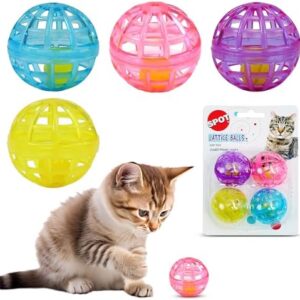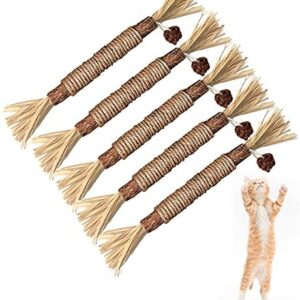
We all love our cats. They are our furry companions who bring joy and comfort into our lives. But have you ever noticed that as your cat gets older, they sometimes start acting like a kitten again? It can be quite confusing and even a little frustrating at times. So why does your adult cat act like a kitten? Let’s explore the concept of a feline midlife crisis.
First of all, it’s important to understand that cats, just like humans, go through different stages of life. As kittens, they are full of energy and curiosity, always exploring and getting into mischief. As they grow older, they tend to mellow out and become more sedentary. However, when cats reach middle age (around 7-10 years old), they may start to exhibit behaviors that are more reminiscent of their kitten days.
One possible reason for this change in behavior is a natural instinct for survival. In the wild, younger animals are typically more active and playful in order to practice their hunting skills and stay alert to potential dangers. As cats age, they may feel the need to sharpen these instincts once again, especially if they are feeling vulnerable or insecure in their environment.
Another factor that may contribute to your adult cat acting like a kitten is boredom. Cats are intelligent animals that need mental stimulation to keep them engaged and happy. If your cat is not getting enough attention, playtime, or environmental enrichment, they may resort to more active and playful behaviors to keep themselves entertained.
Stress or anxiety can also play a role in your cat’s sudden burst of kitten-like energy. Changes in their routine, a new pet or family member in the household, or even a visit to the vet can all trigger feelings of insecurity in your cat. In response, they may revert to behaviors that bring them comfort and familiarity, such as playfulness and exploration.
Health issues can also impact your cat’s behavior and cause them to act like a kitten. Chronic pain, dental problems, or cognitive decline can all lead to changes in your cat’s mood and energy levels. If you notice any significant changes in your cat’s behavior, it’s always a good idea to consult with your veterinarian to rule out any potential medical issues.
So, what can you do to help your adult cat through their feline midlife crisis? Here are a few tips to consider:
1. Provide Plenty of Mental and Physical Stimulation: Make sure your cat has plenty of toys, scratching posts, and interactive games to keep them entertained and engaged. You can also try rotating their toys regularly to keep things interesting.
2. Create Safe Spaces: Cats are territorial animals that need their own space to feel secure. Make sure your cat has access to quiet, comfortable areas where they can relax and unwind.
3. Stick to a Routine: Cats thrive on routine and predictability. Try to keep their feeding, playtime, and grooming schedule consistent to help reduce stress and anxiety.
4. Spend Quality Time Together: Cats are social animals that crave companionship and attention. Take some time each day to bond with your cat through petting, grooming, or simply sitting quietly together.
5. Consult with a Veterinarian: If you notice any concerning changes in your cat’s behavior, make an appointment with your veterinarian to rule out any potential health issues. They can provide guidance on how to best support your cat during this transitional period.
In conclusion, a feline midlife crisis is a natural and common occurrence in adult cats. By understanding the reasons behind your cat’s sudden burst of kitten-like behavior and taking steps to support their physical and emotional well-being, you can help your furry friend navigate through this transitional period with comfort and ease. Remember, your cat may be getting older, but they will always be young at heart.





